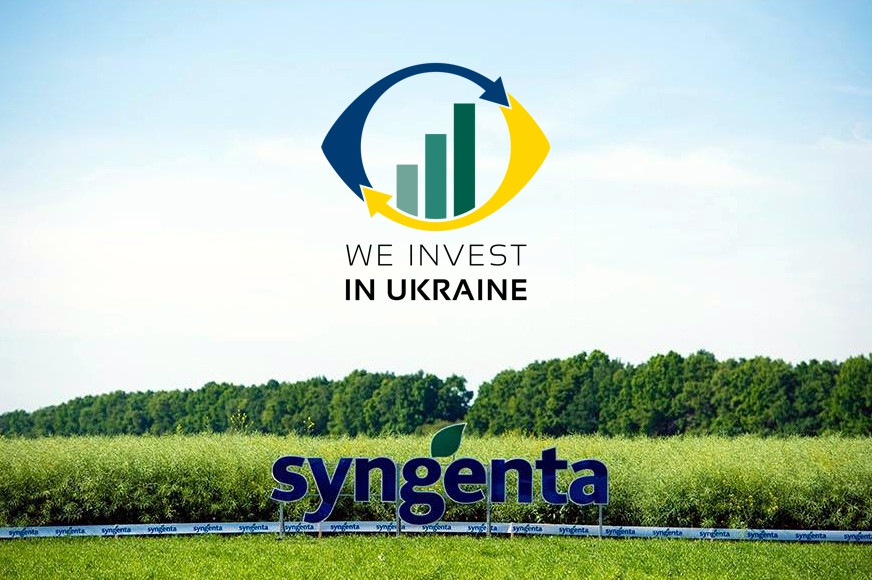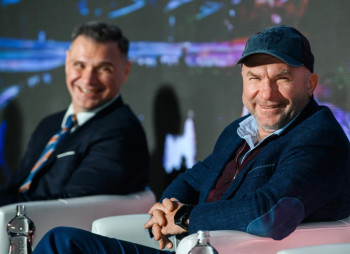Corporate profile
Company name: Syngenta – https://www.syngenta.com
A representative office in Ukraine: Syngenta Ukraine, LLC - https://www.syngenta.ua
General business activity: Syngenta AG is a global Swiss agribusiness that produces agrochemicals and seeds
Date of incorporation: 2000, Syngenta AG was founded by the merger of Novartis Agribusiness and Zeneca Agrochemicals
Global indicators (2016):
- Total annual turnover of the group of companies: $12,79 billion
- Expenditure on R&D: $1,3 billion (10% of turnover)
- Total number of employees all over the globe: 4 400
- Number of countries: more than 90
Syngenta & M&A:
2017 | ChemChina closes in on $43bn Syngenta deal
2000 | Novartis, AstraZeneca Merge Agribusinesses, Form Syngenta AG
Syngenta in Ukraine:
- Number of employees: more than 300 people
- Representative offices are in the eastern, south-eastern, northern, southern, central, western, as well as a list of official distributors of seeds and plant protection products.
- R&D center in the Dnepropetrovsk region | investment $1 million
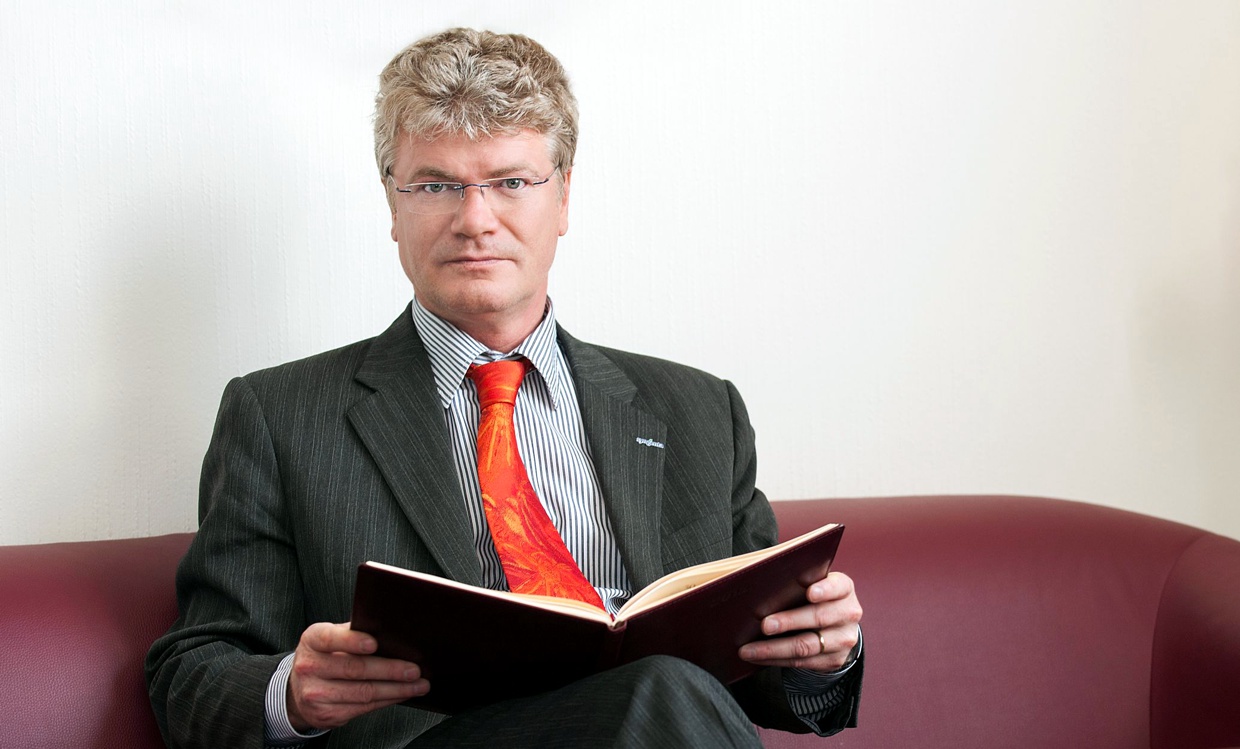
"Ukraine was 36th in the global sales ranking of Syngenta. Today, the Ukrainian market is on the 8th place", "We believe in this market, management believes in this market, the executive board believes in this market, we will invest in Ukraine", Gebhard Rogenhofer
What will change for the Ukrainian market of plant protection products and seeds after the merger of Syngenta with ChemChina?
After the completion of the deal, nothing will change for Ukraine as the changes concern only Syngenta’s charter capital. ChemChina has become the only shareholder; earlier we had thousands of shareholders around the world. Globally, nothing changes either with Syngenta’s headquarters remaining in Basel (Switzerland); the Research and Development Centers will continue to operate in countries where they have been already operating. The deal with ChemChina will allow us to invest more into further growth of our business in the emerging markets, especially in China; to invest more in digital solutions for agriculture and implement new technologies to increasing crop yields and lowering CO2 emissions at the same time, and preserving water resources too. Why did ChemChina decide to purchase Syngenta? You know that the population is growing in China. In fact, this deal made by the Chinese government is an investment in the food security of the country. The deal is estimated at USD 43bn. Now Syngenta has a new executive board consisting of eight people and two of them are from ChemChina.
Many agricultural producers ask whether the quality of pesticides supplied to Ukraine would change after the transaction…
Nothing changes regarding quality. Syngenta products are manufactured at the certified factories around the world in accordance with the approved specifications and international standards. These products come for sale to different countries where Syngenta offices work, including Ukraine. At the same time, agrochemical products produced at any of those plants have the same composition and identical properties. In particular, it refers to physical and chemical, toxicological and eco-toxicological properties, as well as indicators of biological effectiveness. Compromise over quality with us was never possible and never will be.
ChemChina is also the owner of ADAMA that sells pesticides in Ukraine. Do product portfolios of Syngenta and ADAMA overlap?
Yes, we have some competitive products in the portfolio. But the business model of the work of both companies is already known: Syngenta remains Syngenta, and ADAMA remains ADAMA. In pharmaceutical sphere, for example, there are companies that sell generics and original medications, and they work with absolutely no trouble at the markets. We will use a similar approach in our work.
How interesting is the Chinese market for Syngenta?
For our company, the Chinese market is very interesting, and now the share of the market for Syngenta is small. But we have a plan to double our business during the next five years in China. It refers to both seeds and plant protection products. In China, we will use and develop our technologies and know-hows to promote the highest standards in the agricultural industry, in food safety and the environment, and to improve crop yields. All global players in the agrochemical market have their factories in China. This country is the main supplier of active ingredients for agrochemical production. At this, the chemical compounds can be developed for the products in other different countries.
Will the deal influence the price values for products delivered into Ukraine?
It is difficult to predict prices. The cost of our products depend upon several factors including oil prices, rising prices for some active agents caused by a the global increase of demand, and the growing expenditures on research and development. The only forecast that I can make is that our prices on products will be more or less stable in the next year. An important role plays the hryvnia exchange rate fluctuations in this process too.
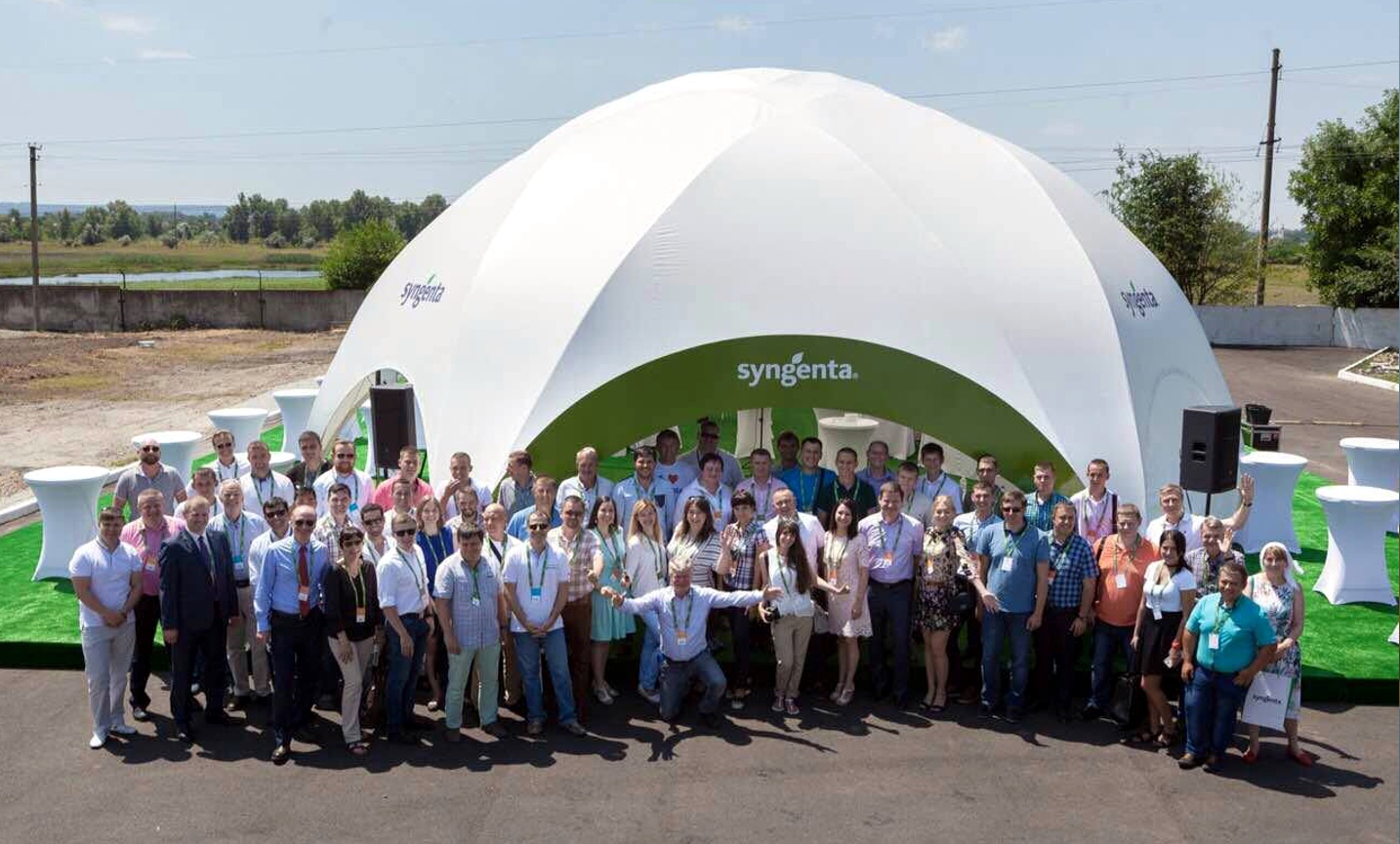
What is the share of the Ukrainian market in the total sales of Syngenta?
Several years ago, Ukraine was 36th in the global sales ranking of Syngenta. Today, the Ukrainian market is on the 8th place. In 2001, we run a small business in Ukraine starting with a team of 24 people. Now the Ukrainian division employs more than 300 people. Up to 2008, the average growth rate of sales made 15.5% a year.
Your company uses various financial instruments to conduct sales. Are they helpful in attracting new customers? Are Ukrainian agrarians ready to work using such programs?
We receive a very positive feedback from the farmers on participating in our financial programs. We see that financial products and solutions are working. This year, we made 20% of sales with the help of financial programs. This is really one of the opportunities to effectively increase our sales. Why did we decide to develop a department for financial solutions? This gave us the opportunity to expand our client base, and in this case to share the risk of shortage of working capital with the farmer. Our financial products are understandable and profitable instruments for farmers. The range of the offers corresponds the needs of agribusinesses of different sizes and specializations; everyone can get advice from our specialists and choose something for their own. The interest of agricultural producers is growing towards our financial solutions. As an example, six farms took part in the Forward Plus program in 2014, and 40 applications were submitted in 2017.
How much can sales of seeds and plant protection products increase in Ukraine in 2017?
This year we have a record sales of winter rape and sunflower seeds. In 2017, we plan to increase sales of seeds by 7%, and plant protection products – up by 3%.
In Ukraine, the company does not have its own seed plant for treatment of seeds. Syngenta cooperates with the Maisadour plant in this respect in the Dnepropetrovsk region. What are the terms of your cooperation?
We have a long-term contract for cooperation with Maisadour not only in Ukraine, but also in France. We will work for several more years as production partners, but we are competitors in the market of the seeds sales. We treat our corn and sunflower seeds at their plant in Dnepropetrovsk.
In Ukraine, there is a strong selection tradition for wheat and corn seeds. What is the situation with the sunflower seeds?
Globally, three countries play an important role in the production of sunflower, these are Ukraine, Russia, and Argentina. They are the very markets Syngenta works with in this respect. About 70% of sunflower seeds we import into Ukraine, while 30% is a local production. The limiting factor for the production of sunflower seeds is the only one ─ isolation of fields is needed for a pure genetics. There are so much sunflower fields in Ukraine that it is very difficult to sutisfy this requirement, as we are aiming at pure genetics. About corn, everything is not that complicated, so 75% of the corn seeds we produce in Ukraine. The rest is imported from France, Hungary, Romania, Italy, and Chile.
Do you plan to bring out new products to the Ukrainian market in the near future?
In the nearest future, we will be able to offer the first hybrid of sunflower seeds which is 100% of Ukrainian selection. Now the hybrid sort undergoes the testing phase. Also, we will complement the seed portfolio with three new sunflower hybrids which are resistant to broomrape. In the meantime for the segment of the plant protection products, we will offer an innovative dressing.
How do you assess the prospects for exporting seeds from Ukraine to the EU?
It should be noted that in 2009 Ukraine joined the OECD certification schemes for grains, corn and sorghum, and, by the way, the first audit from DG SANTE was successfully completed in 2015. In 2014, the country joined the OECD schemes for oilseeds (and cruciferous) crops, and now we expect the document ratification by the Verkhovna Rada. At the same time, work is under way to joining the OECD sugar beet schemes. If Ukraine becomes a member of the OECD, the prospects for exports of seeds will be greater. Many things depend upon the strategy of production of seed companies. I admit that in a few years, Ukrainian seeds will be sold at the western market. The capacities are sufficient for seed treatment in Ukraine, and everyone is waiting for the day-X to come, when it will be possible to increase capacities minding further exports.
Do your sales grow in the segment of vegetable seeds? How do you work with farmers in this niche?
We are leaders in this market, but, unfortunately, the production of vegetables declined because of the political situation, as the main export market of Russia was closed. In a few years, I hope, Ukrainian producers will be able to confidently deliver their products to the EU market. Syngenta will help all the farms that want to grow vegetables in Ukraine. In August, we celebrated 150 years of our vegetable business which is mainly concentrated in the Netherlands. We import seeds to Ukraine from there.
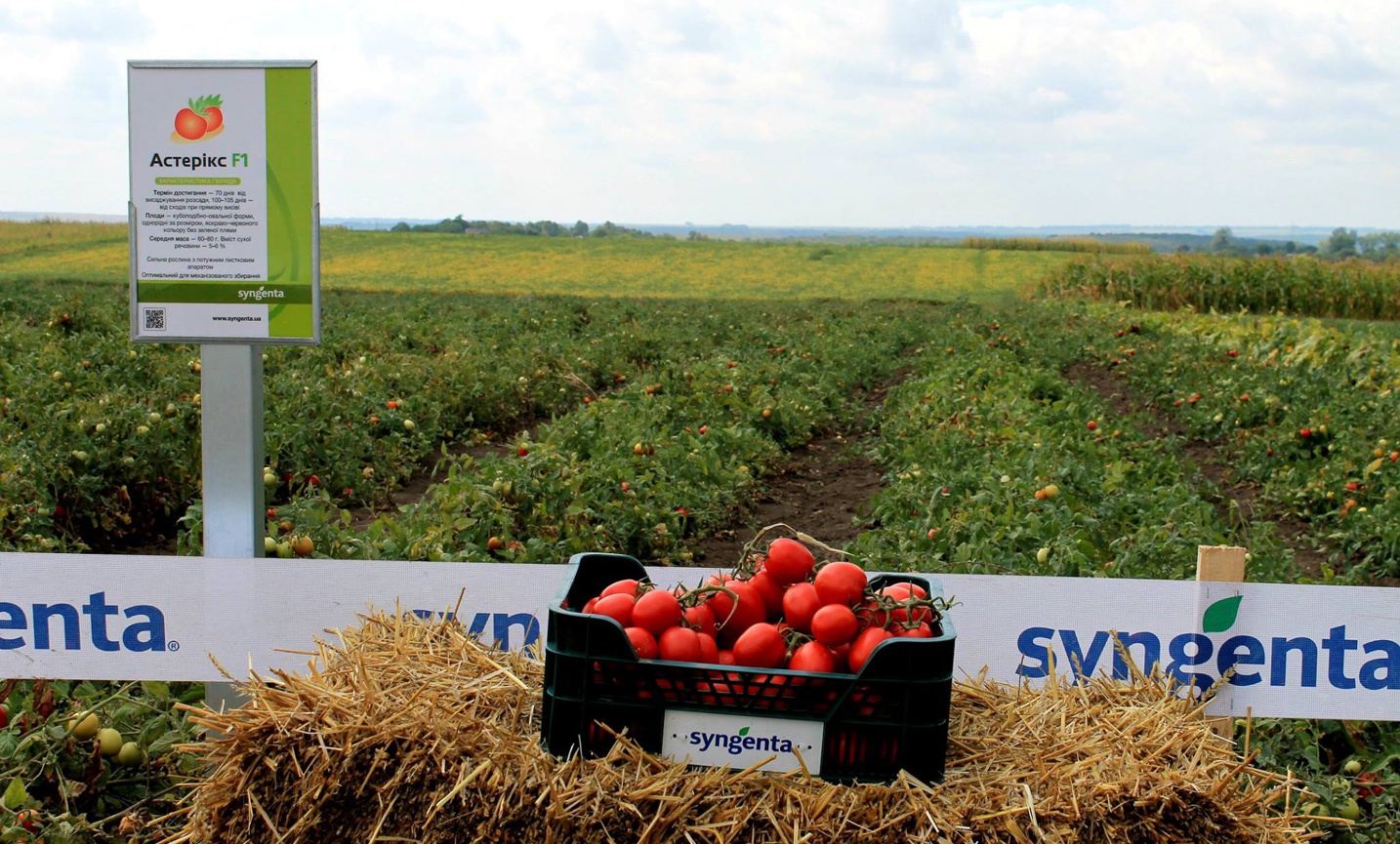
Why it is not interesting for large companies to open own brand stores and sell their products in order to control the situation with illegal trafficking of seeds and pesticides?
Our competitors had such branded stores and they all got closed, most probably because it had been unprofitable. We are at war with counterfeit productions. We have an annual program for working with the European Business Association in this respect. Our security department is also working effectively. The war in Ukraine against counterfeit products was, is and always will be, as this is a high profit margin market.
What is your estimate of the share of illegal products in the market of pesticides and seeds in Ukraine?
No one knows for sure, but we think that the share of the plant protection products and seeds is about 20%, while the small-sized counterfeit is about 80%. This is about counterfeit inside the country.
Is there smuggling of crop protection agents in Ukraine?
Yes, but in small quantities. The sizes are much lower in comparison with counterfeit production. Counterfeiting is not only a local business in Ukraine; it is rather a global business all over the world.
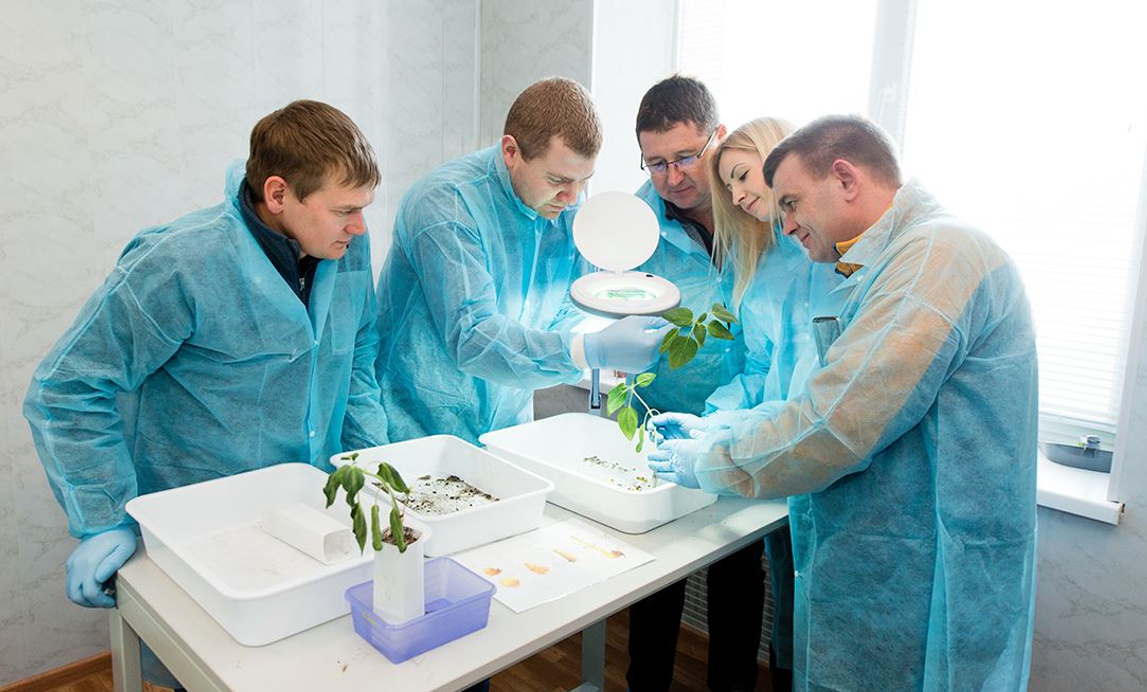
What is the procedure for disposing of the counterfeit goods in Ukraine?
There is no procedure. And, unfortunately today there is not a single factory that can dispose those counterfeit products in Ukraine . We have long and long talks with government agencies over this issue. So far, we cannot organize the transportation of illegal pesticides to Poland and Germany, where there are such factories for a disposal.
Where does the counterfeit go?
I hope that it remains in the warehouses under control of the law enforcement agencies. In Ukraine, there are factories for recycling of packaging from pesticides, but these capacities are not enough. In order to recycle counterfeit pesticides the high temperatures are needed. It is a different process technologically.
Hasn’t your company studied a possibility of building a plant for waste pesticide disposal?
We are considering some opportunities here in Ukraine. There is one Ukrainian investor who considers helping us, and one other German company. So, we will discuss this project in the future.
What are your plans for Ukraine in the frames of the program of The Good Growth Plan?
Syngenta, within the framework of the program of The Good Growth Plan (2020), is implementing a project to combat the degradation of farmlands on the basis of the Shirokostup farm in Kyiv region. We have attracted scientists from specialized institutions to investigate soils of the land plots at the farm and to provide recommendations on applying measures to restore them. This research is financed by our company, and the farm, for its part, must follow these recommendations at own expense.
Also, Syngenta committed itself in Ukraine to increasing the efficiency of growing crops such as corn by 8% and sunflower by 15% until 2020 without enlarging the acreage or water consumption along with the other costs. The company has chosen farms from three regions - Vinnytsia, Kyiv, and Cherkassy oblasts - to take part in fulfilling this obligation.
We also train farm workers in safe production regulations. The experts of the company conducted practical trainings and seminars for almost 700 farmers in 2016. They delivered trainings about safety measures and rules when working with plant protection products.
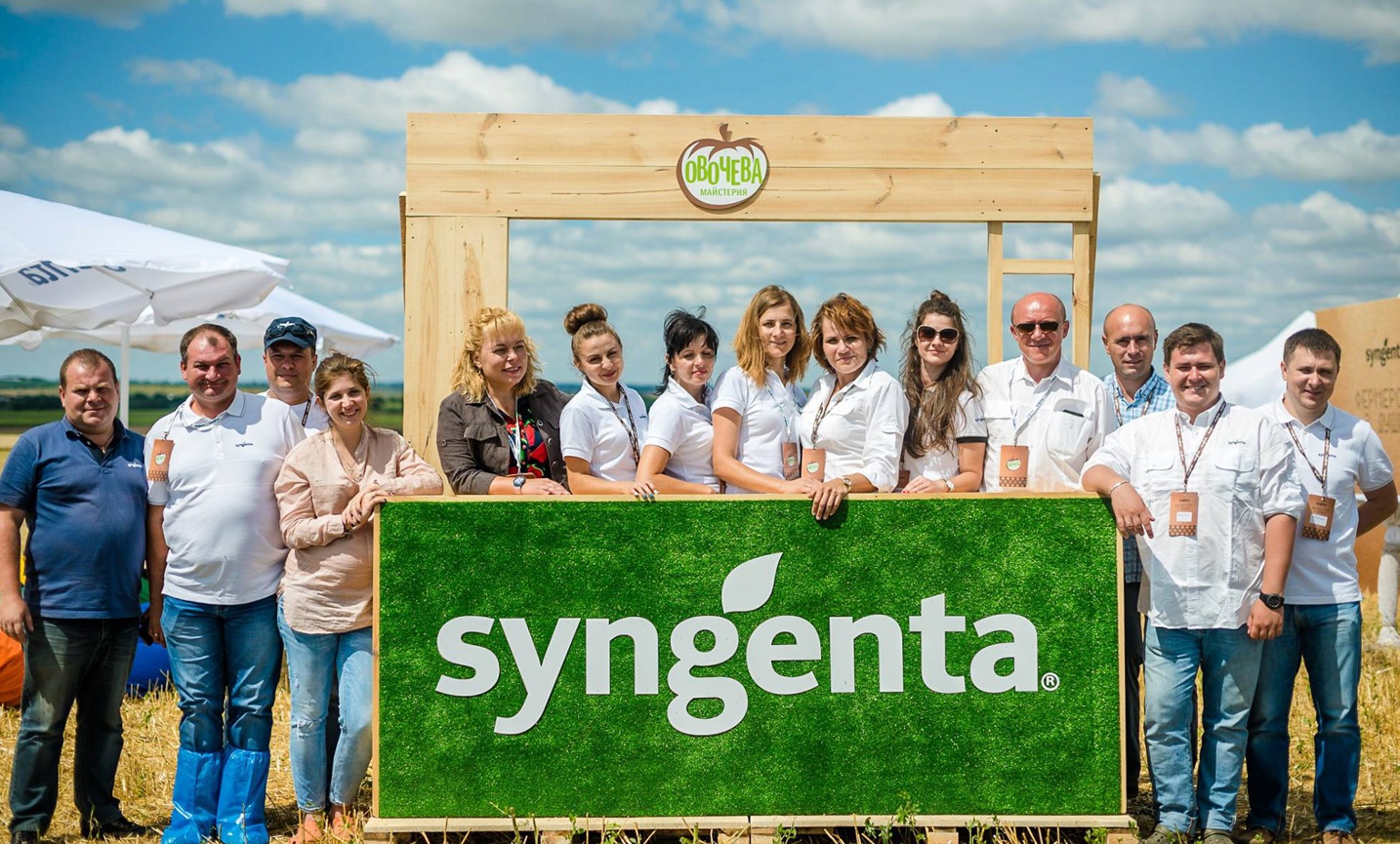
Why the investments are small considering those great possibilities in Ukraine?
- Not all Western investors are ready to work in such an extreme business climate. The main problem is, of course, corruption and instability. After all, the main thing for a business is to work openly, freely and constructively, according to rules that are comprehensive for everyone.
Do you think that the investment climate in Ukraine is improving after the events of 2014?
Business climate is slightly better. We have stabilization of the hryvnia, but, unfortunately, corruption remains and there are no moves in this direction. We hope that it will be better, but so far, I cannot say about the essential difference or improvements.
Will the company keep the investments in Ukraine?
Now we are working on the approval of the investment plan for 2018-2019. During the existence of the company in Ukraine, we have opened four scientific research sites of agro-chemical products and seeds, four test centers for our customers with a wide range of laboratory and technical services. In 2015, the Institute for Seed Protection started working in the city of Dnipro, and more recently a scientific station for the selection of corn and sunflower seeds also started in Dnipro. We have plans to invest in a research station for agro-chemicals in a town of Bila Tserkva. Our R&D base is an investment in innovation...
What is the uniqueness of the investment in the scientific and selection center in the Dnepropetrovsk region?
The construction of the center took us two years in the village of Chumaki of the Dnipropetrovsk region. This place was not found immediately, at first they wanted to make the station in Zaporizhia region, but the climate is hotter and drier there, and in Dnipropetrovsk region sunflower produces excellent results in selection. Here is an ideal place for sunflower selection. Sunflower and corn are key crops, and 80% of sunflower seeds are grown in Eastern Europe. That is why we are opening a new advanced selection center here in Dnipro. The ideal product comes from here because it is the very such centers combining science and marketing that deliver an excellent result. And it is Ukraine that will be able to feed the world in the future!
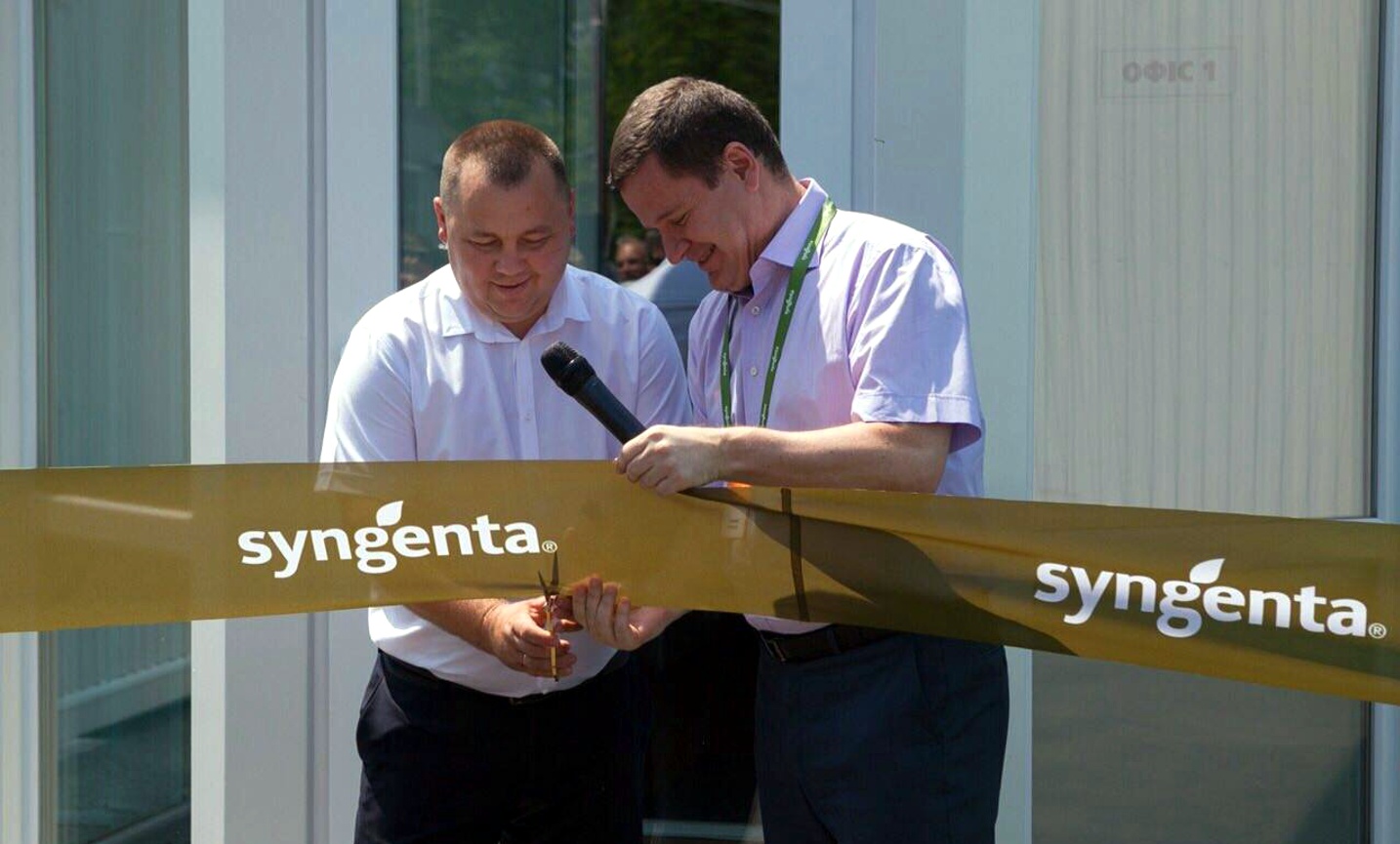
The official opening of the research station of Syngenta in the village of Chumaki, Dnipropetrovsk region
If the market of agricultural land starts working in the nearest future, how will it influence the investment attractiveness?
- In the nearest perspective, it will not influence it in any way, I believe. That is to say that all the statements about floods of investments into the country after the lifting of the moratorium are a sort of a pure populism. But in the long-term perspective, that is, not 2-3 years but at least 10 years, it will open great opportunities. At the first place, it will attract investments, as a farmer will be able to say, “Here I own so much land, with such a yield rate providing plans, calculations and this will already be a good reason for arranging a loan. Secondly, the attitude towards land will change. After all, if this is my land, then I work in a manner that in 10 years it will become even better. So far, they lease and squeeze everything, effectively destroying the fertile layers. These are two the most important aspects.
What problems does the company experience with state regulations? What is your solution in this respect?
Now we have problems with registration of agrochemical products. After the changes in the legislation, a mandatory condition, for the imports and use of the unregistered plant protection products in Ukraine, has become a documentary confirmation of their state registration in the country of origin. But we are importing agents for growing rice in the south of Ukraine, why should we register it in Germany, if we need it here? We have not received a single registration for the plant protection products in entire period of 2017. The abovementioned change has artificially created a non-tariff trade barrier faced by international companies operating in Ukraine. After all, this provision applies exclusively to R&D companies putting them into a discriminatory position compared to the entire market and leads to unfair competition. The ambiguous interpretation of this provision by government workers leads to a variety of abuses and the creation of a prelude to corruption. It closes access of Ukraine to international investments. Ukraine blocks itself by such a stance to innovative technologies and products of a new generation. With seed certification, thanks God, everything is fine. I want to say thank in person to the first deputy minister of the agrarian policy who helped the seed companies in settling the issue.


